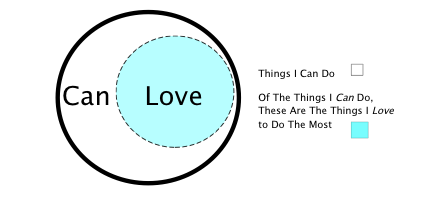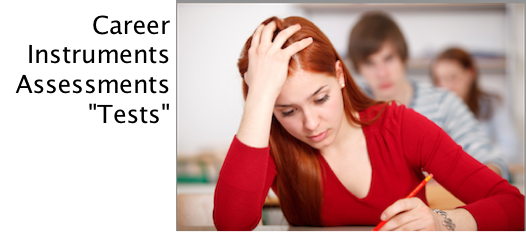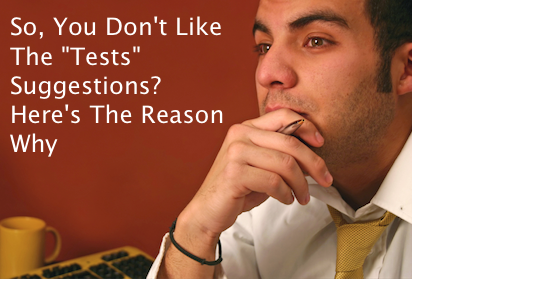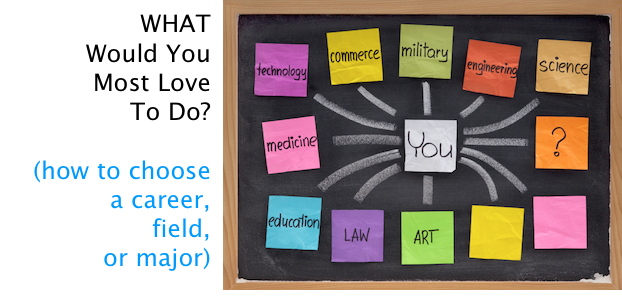For Career Changers
How Long Should You Wait for Your Dream?
Author: Dick Bolles

How Long Should You Wait for Your Dream?
One summer, an American investment banker was vacationing in Mexico, in a small coastal village.He was down at the dock just as a small boat was docking. The banker noted that on the deck of the small boat were several large yellow fin tuna, and only one young Mexican fisherman. He addressed the fisherman in English (which he understood), extended his compliments on the quality of those fish, and asked how long it took to catch them. The fisherman replied, "Only two or three hours."
The banker then asked why he fished so briefly. The fisherman said two or three hours of such work gave him enough money to support his family's immediate needs.
Said the banker, "But what do you do with the rest of your time?" The fisherman said, "My day is this: I sleep late, then fish a little, then play with my children, take siesta with my wife, Maria, then stroll into the village each evening where I sip wine and play guitar with my amigos."
The banker saw an opportunity to be helpful. He said, "Back in the States I am an investment banker. If you wouldn't mind a little advice, I think I could help you with your business." The fisherman looked curious. "What would you advise?"
"Well," said the banker, "Were I in your shoes, I would spend more time fishing each day. You would eventually be able to buy a bigger boat with your increased proceeds."
"And what then?" asked the fisherman. "Well, with the proceeds you would receive from using the bigger boat you would eventually be able to buy several such boats. You'd have a fleet. And with that clout, you could get rid of the middleman, and sell directly to the processor. Eventually you could open your own cannery, leaving you controlling the product, the processing and the distribution."
"And what then?" asked the fisherman. "Well, at that point you could afford to live anywhere. You could put your wife and your kids in a luxurious house or condo, say in New York, and just enjoy all the fruits of your vast enterprise."
The fisherman said, "Very interesting. How long would all this take?" To which the American replied, "I think you could achieve all this easily within 15-20 years."
"And what then?" asked the fisherman. The banker laughed triumphantly, "That's the best part! When the time is right, you take your firm public, and immediately you become very rich. In fact, you would make millions."
"Millions...!!! Very interesting. And what then?" the fisherman asked.
The banker thought for a moment. "Well, gee. At that point, you could afford to retire. A wonderful retirement, in fact. You could move to a small coastal fishing village where you would sleep late, fish a little, play with your grandchildren, take siesta with your wife, Maria, stroll to the village in the evenings where you would sip wine and play your guitar with your amigos."
Why Wait?
The point, of course, is that many times we could have now the life we are only dreaming about having sometime in the distant future.
But, the first condition of having it now, is to know what it is.
One man I know of – a salesman – used his summer in just such a way, but was dismayed to notice that what he most loved to do would never generate enough income to support his family: he loved to 'play bridge'! (the card game).
But,he decided to take a crack at it. He started small – holding on to his sales job – just teaching bridge to people on Friday nights and weekends. But soon he was in such demand that he had to quit his regular job to teach bridge full time. Eventually he had to hire other teachers. In time, he expanded to other cities. He ended up earning far more than he had ever earned as a salesman. And doing what he loved to do. This is a true story.
And the moral of our tale? Don't ever give up on finding the life you would most love to live. And finding it now. The first step is figuring out what life you really want. Yes, that takes hard thinking. That's why God gave you a brain. Use it. For help, try, read, actually do chapter 7 in the 2015 What Color Is Your Parachute?
Everything that Delighted You As A Child
Author: Dick Bolles
 .
.
Everything That Delighted You As A Child Still Truly Matters
An increasing number of us find, as we move toward mid-life, that we grow restless, like a caged tiger pacing back and forth within its cage. And eventually, we realize that our work is the problem. We weigh it in the balance, and find it wanting. It feeds our body, but not our soul.
Long forgotten questions resurface in our mind, such as "Why am I here on earth? What was I put here to do? What is it I want to accomplish with my life, before I die?" We want to feel passionate about our work, so we search for clues. And, strangely enough, we often find the best clues back in our childhood.
Something about that period – our childhood – that made us see things more clearly than we knew, for we were innocents, and our business was to play. It is in our childhood play that the clues most often are found.
It was also our business as a child to daydream. And the phrase we often hear, today – "Find the job of your dreams" – hearkens back to our childhood dreams, when dreaming was what we did best.
The Story of Anne
All of this is perfectly summarized in the true story of Anne. She is a woman who tried to make her living, for many years, as, first, a musician, and then, as owner of her own small business. But neither satisfied her. After twenty years of this, someone told her she needed to go after her passion – and said it in a way that she could hear. She went to a career counselor, who had her write seven achievements of which she was proud, and then search for the skills they all used, in common "The common theme," she discovered, "was that I live for data. I like to gather it, analyze it, look at it, reproduce it, organize it and dream about it."
For insight as to "What kind of data?" the counselor examined with her each of her seven achievements. But let her tell her own story: "The one which jumped out at the career counselor was the fact that I had taught myself genetics in my childhood. He encouraged me to talk about what I'd done in genetics, particularly in sixth grade. After listening, he pointed out that most sixth graders do not invent races of people and then think about how all the racial characteristics would be inherited, or spend hours drawing out the predicted results of every kind of cross imaginable between my race and all the others."
So that was it. Her favorite skills were with data, and her favorite data was genetics. "I finally came to understand that I was a geneticist, whether or not I made my living that way." And this passion had manifested itself in her childhood, as early as sixth grade.
She knew she had to do something about that childhood dream, even though the idea was daunting for two reasons. One was that she was 39. The other was that she is legally blind.
Anne found the strength by pressing into service the delighted child that she once was.
"The thought of working in the lab to transfer 50 50-microliter aliquots of liquid from one flask to another was maddening to me at age 39. But the six year old Anne who filled her grandmother's drawer with tiny bottles and longed desperately for a way to transfer liquid accurately between them, found the experience absolutely delightful."
Anne also pressed into service from childhood the skills she'd learned from being blind:
"I knew, because I'd had to do it in my daily life how to infer physical location from numerical data. I could, from the very beginning, look at a set of mapping data and 'see' the map. The process of inference so essential to genetics had been a part of my life for years – because of my vision impairment, not in spite of it."
And so, from the memories of her childhood, Anne found all the clues she needed, to identify her passion, her skills, her special interests, and her mission in life.
When we are at that place in life ourselves, where restlessness grows apace, it is to our childhood we must go, in memory, and search to find again what once was very plain to us, and now has grown obscure: our passion in life. Or, as Anne puts it, "I wish I could make people understand that everything which delighted them as a child still truly matters."
What Would You Most Love to Do?
Author: Dick Bolles
In deciding what you want to do with your life, or what you want to do next with your life, there are only three questions to ask yourself: WHAT, WHERE, and HOW.
1. WHAT do you most love to do?
2. WHERE would you most love to do it? and
3. HOW do you name such jobs, and how do you find such jobs?
There are numerous techniques, instruments, assessments, or interactive "tests" to help you. They are found in books, on the Web here, and in the offices of competent career counselors (or coaches). I will list these tools for you, but first, a comment or two about the questions themselves.
That word Love is important. You want to look for your passions (what you'd most love to do), rather than just your competencies (what you can do). In my 44 years of experience in this field, I have found this is terribly important. Oh, some "experts" will claim that it's hard enough to find any work during this long slow U.S. recovery from the 2008 Recession, so this is no time to be picky. Don't believe them. It's always time to be picky. Here are five reasons why:

1. In this imperfect world, you're only likely to find part—not all—of what you're looking for, at least in the beginning. So if you aim for all of your dream, and at first find only half of your target, good news: you've found 50% of your dream job, right off. On the other hand if, out of fear, or a desire "to be realistic" you aim from the beginning for only half of your dream, and end up with half of that, you've found only 25% of your dream.
2. If your job-hunt drags on, as is the case more often since the 2008 Recession, you need something that will keep you at it! Pursuing what you'd most love to do will give you the determination to keep on going with your job-hunt or career-change, even during rough patches. "If I get this, or even something close to this, it will all be worth it."
3. If your job-hunt drags on, you need to replenish your energy along the way. Pursuing what you'd most love to do will give you the energy to keep on going, even during rough patches. (Notice, in other situations, when you're talking to a loved one, and you get on some topic you're enthusiastic about, how your energy level rises. You feel renewed. So, here.)
4. You need another way to find organizations than just waiting for them to announce a vacancy. If you first identify what you'd love most to do, it's relatively easy then to identify and research places that have such jobs. And you can then approach them through your contacts, before they ever announce their next vacancy.
5. Once you get a job interview at places of your choice, you need to stand out from the other (say) nineteen people they're interviewing there. It is the enthusiastic job-seekee rather than the one who can just do the job, that stands out in any interviewing process. If it's your whole dream you're after, you will be enthusiastic, without even trying, because you're about to get closer to your dream.
Figuring out A Career through Taking Tests
Author: Dick Bolles

No, they're not really "tests." People like to call them that, but it is a misnomer, because there are no right or wrong answers, as there would be with, say, a math test. Their real name is "instruments" or "assessments" (as in "my teacher's assessment of me as lazy proved to be wrong"). So, call them anything you like. There are a lot of them, they are on the Internet, they are fun (sometimes), they are interactive, and many of them are free. Below is a list of them, and where to find more.
Introduction: But first, a few words of introduction (which you can skip, after this, anytime you come back to this page). Interactive tests online divide into two categories: Personality tests, and Career or Vocational tests – though sometimes the line between them gets rather hazy.
Despite this distinction, many career counselors or coaches, online or off, lump them together and call them all "career tests." But, actually, the distinction is useful. Most of them are "Personality tests," not "career tests." They tell you a lot about your personality, not so much about appropriate careers. In fact, the idea of trying to choose a career simply on the basis of your personality is very chancy. It's only one third of the equation. You have to also have certain skills, including skills with people, and you have to also have certain knowledges.
On the other hand, it is important that your future job or career respect your personality, and ideally fit or be congenial with your personality; so, these personality tests are not without career implications, at the very least. So let us now turn and look at the online tests that are available. In terms of families, there is The Birkman Method, The Myers-Briggs, The Five Factor Model (FFM), The Enneagram, and John Holland's Self-Directed Search (SDS).
The Birkman Method
The Princeton Review Career QuizTM
http://www.review.com/career/careerquizhome.cfm?menuID=0&careers=6
This is a forced-choice test, asking you for the most part to choose between two categories, even if you don't particularly like either one. If you don't like forced choice comparisons, you probably won't like this test.
But for myself I like this test a lot. A shortened version of "The Birkman Method®" this little gem has three sterling virtues, in my view: It is fast, with only 24 questions to answer; the format is attractive, with a great use of color in both the display and the printout of its results (assuming you have a color monitor and color printer, of course); and thirdly, it often presents you with some interesting career suggestions.
After you've answered the 24 questions, you will get a general description of your interests, skills, and preferred style (described in terms of the "Birkman Colors"), as well as a list of careers that all of this points to, chosen from a list in the Princeton Review's Guide to Your Career. Also, there's a detailed description of each career online, a starting point for any subsequent face-to-face exploration.
Like any test, this can lead you seriously astray, if you aren't scrupulously honest about your actual behavior. e.g., Do you really feel so patient, when you're kept waiting? Lie, and you'll deserve what you get.
In any case, you should regard its findings as "possibilities" rather than "the gospel truth" about who you are. But if you're puzzled about what career to chose next, this may give you some good ideas to explore further, matched to your skills and interests.
And speaking of ideas to explore, on the same site is a terrific list which you should also check out.
The Myers-Briggs ($$)
http://www.myersbriggs.org/my%2Dmbti%2Dpersonality%2Dtype/mbti%2Dbasics/
You, of course, would prefer to get the benefits of finding out your Myers-Briggs Type, without having to pay anything for it. Fortunately for you, there are websites which approximate the MBTI.
The Keirsey Temperament Sorter (Free)
Keirsey has a more extensive, but also more complicated, site. It has explanations of Personality Type, and lengthy descriptions of the various temperaments. It has two interactive tests/sorters: the Keirsey Character Sorter (which is newer and more complete), and the Keirsey Temperament Sorter (which is online in several languages – English, Spanish, Portuguese and German, currently). The site is interactive, and once you've answered its questions, it gives its results to you in Myers-Briggs Personality Type language ("you are an ENFP") – with colored graphs. All to the good. The bad news is: You have to go to several places within the site, before you can find out what it all means, for you.
Personalitytype.com (Free)
This website belongs to author Paul D. Tieger. His website is basically a teaser to get you to buy his product ($27). But prior to that, Paul gives you a free approximate reading of your Myers-Briggs code. Great site!
Resource Materials Concerning Personality Types
http://sunsite.unc.edu/personality/faq-mbti.html
If you want to learn more about Personality Types than is available online, the Resource Materials site has a very extensive bibliography of printed materials that you can go look for in your local library, or any bookstore (such as amazon.com or the one down on Main Street).
There is much criticism regarding Personality Types. Here is a typical one, from a widely-respected research psychologist:
"MBTI was developed based on Jungian ideas about personality. As most people know there are four dimensions of personality in the MBTI, each with two opposite preferences. Everyone falls into one of 16 types formed by these dimensions, this type is purported to predict one's behavior in all situations. It is like your blood type, immutable and distinct from all other types. That is unless you take the MBTI on more than one occasion. Then you see, even in well-designed peer reviewed studies, that as many as 50% of people come out as a different type than their original. In the language of psychometric theory this is called piss poor test-retest reliability. The MBTI cannot be trusted to give you the same results from time to time. So either we have a cr** test that poorly measures these four dimensions that are in fact reliable, or we have unreliable dimensions, dimensions that in fact are changeable over time in opposition to the test developers claims. Whatever it is we have a serious inconsistency with the description provided by the MBTI folks.
"One more beef I will detail that most psychometrists have with the MBTI. If this test is worth its salt, it should also show evidence of validity, that being that there is empirical evidence that the items used to measure the MBTI are associated with each other in ways that are predicted by the theory underlying the MBTI. Theory #1--there are four dimensions to personality. Wrong--while a few studies here and there find four factors many factor analytic studies find five, or six or even seven factors. Theory #2--the dimensions are unrelated. Again, we do not find consistent evidence for this. Sensing-intuition often correlates with judging-perception.
"The list goes on. The MBTI is a piece of trash when evaluated from a psychometric perspective. But it has benefitted by getting ahead of the curve in marketing, being accepted by groups of psychologists and job professionals that do not historically place a lot of emphasis on psychometrics, and by having the feedback written in universally positive language that most anyone will accept as an accurate statement about one's self. Otherwise okay.
"A better option--how about an empirical approach? Say one hypothesizes personality traits, not immutable personality types, and then gets lots and lots of people to answer numerous questions judged by professionals to reflect these personalty traits. Do this over and over, as the brilliant personality researchers such as Tupes and Cristal, Goldberg and Costa and McCrae have done and presto. The Big Five personality traits have emerged. Every day there seems to be new research that validates these traits. They may not measure all of the personality traits we have, but they are surely valid traits. " Galen Buckwalter, Famous research psychologist, on Quora.
Another criticism of the MBTI is the Personal Style Indicator of Terry Anderson, Everett T. Robinson, and Ken Keis. These men have invented an alternative instrument, a commercial product, that they believe corrects the defects of the Myers-Briggs.
http://www.crgleader.com/downloads/MBTI-PSI-White-Paper.pdf
http://www.crgleader.com ($$)
The Five Factor Model (FFM)
A test based on the FFM can be found at either of the urls, above. My only quarrel with the five factors is with the one called "neuroticism." In modern thought that term has a negative connotation, even though this is not identical with the Freudian term "neurotic", whereas the other four factors have a positive connotation. Therefore this fifth factor is alternatively called "emotional stability."
Summing up, in my view, the fundamental defect of Personality Type instruments is that they are great at illuminating the style with which you do any job, but are often misguided at predicting what career(s) that implies. I can tell you from decades of experience: Dream jobs or careers are defined by much more than just 'Type' or "style." I would therefore take all Personality Type career suggestions with a huge grain of salt. But they may stimulate your own ideas, which is a very good thing. For that reason, they're usually well worth taking.
The Enneagram
This is another highly popular test or instrument, these days, though how much it has to say about career-choice is also subject to wide debate. We can say this much confidently: Career choice is always a search for the self, and for work more fitting to that self. In that sense, the Enneagram at the very least has career implications, and is useful for stimulating self-awareness, self-observation and growth.
Site dealing with it exist in a number of places on the Web. The two that I think are the best, are:
Enneagram Personality Dynamics
Rebecca (Becca) Xiong of the MIT Laboratory for Computer Science, maintains another impressive site dealing with the Enneagram. For those who want to delve more deeply into the instrument and its philosophy, this is the answer to their prayers. Becca is very thorough. She offers an FAQ (Frequently Asked Questions), descriptions, diagrams, another version of the test that you can take interactively, an Enneagram chat room, a message board, and a list of other sites on the Web that have to do with the Enneagram.
The Enneagram: An Adventure in Self Discovery
A site called "The Enneagram: An Adventure in Self Discovery," maintained by Jack High, a certified Helen Palmer teacher who resides in the northwestern United States, has a most complete list of Enneagram resources, seminars, history, etc. This is for those who want to do further research into the whole idea of the Enneagram.
John Holland's SDS (Self-Directed Search)
My favorite career system for three decades has been John Holland's RIASEC system, and its stepchild, your three-letter 'Holland Code,' which you determine by taking John Holland's Self Directed Search instrument. (The online version of the SDS is at http://www.self-directed-search.com, which you can take, resulting in a personalized report online, that you can print out (the cost for all is $9.95).
The Career Interest(s) Game
http://career.missouri.edu/career-interest-game
John Holland and I were friends for 25 years (he died in 2008), and many years ago in a playful moment I invented a brief, quick hazy overview of his RIASEC system, based on my idea of someone walking into a room where a party was going on, and different groups (the RIASEC groups) were gathered in six separate corners of the room. It's called the 'Party Exercise' and it's in the 2015 What Color Is Your Parachute? (pages 125 - 130) and in The What Color Is Your Parachute Workbook, and in another book of mine called The Three Boxes of Life, but it's not (officially) on the Internet.
However there is a version of it online, sans title, sans diagram, but with my original wording, at the University of Missouri site, above. They call it the Career Interest(s) Game, and while it lacks my central graphic, they've otherwise done a great job of presenting the exercise in color with career links, etc. It gives you a good "first guess" at your three-letter 'Holland Code,' but recommends that you also take the paper version of John Holland's Self Directed Search test.
The Career Key
http://www2.ncsu.edu/unity/lockers/users/l/lkj/
The Career Key, Lawrence Jones's interactive instrument, is a longer test, also designed to tell you your "Holland Code." It's relatively brief to take – though longer than the Career Interest(s) Game – and does well at giving you your three-letter 'Holland Code.' But, when it then offers you some possible occupations to consider, that match your Code, it is nowhere near as helpful as the Birkman. The reason is that occupations are organized here by 'single-letter Holland codes' rather than by 'three-letter Holland Codes' – to my mind, a serious defect. You are left to flounder around among all the "A" occupations or all the "R" occupations, rather than their using the second and third letters of your 'Holland Code' to focus things down a bit for you.
On the positive side however, which is why I recommend it, The Career Key nicely links its list of occupations directly to the renowned Occupational Outlook Handbook in its current edition, and by clicking on any occupation in Career Key's list, you are taken to a detailed description of that occupation. A nice touch.

It is a common experience when people are trying to choose or change careers. They find out there is a test they can take, and it sounds like fun, They pin their hopes on the test giving them a definitive answer, as to what career they should choose, next. So they take it, and then....................
Nothing.
They don't like any of the suggestions the test (or tests) arrive at. Why? What went wrong?
Well, what went wrong is that tests are limited. So, if you haven't taken a test yet (or even if you have), here are:
The Seven Rules To Keep in Mind About Taking Career Tests
There is no one test that everyone loves.
To begin with, some people hate all tests. Period. End of story. Forcing these tests on your best friend (if they feel this way) could lead to your premature demise.
Other people like tests, but hate particular kinds of questions. For example, some people dislike "forced-choice questions," where they must pick between two choices that are equally bad, in their view. Other people dislike "ranking yourself against others" questions, because, with their low self-esteem, they rank themselves poorly in comparison with "others" in almost everything. Other people don't like "pick occupations you like" questions, because they've learned by experience that all occupations, as commonly practiced, are a mixture of good and bad, and they keep thinking of the bad stuff, when each occupation is mentioned. Other people don't like questions about how they would behave in certain situations, because they tend to pick how they wish they would behave, rather than how in fact they actually do.
Tests tend to put you into "families", and thus describe the family you are in, but not You.
A personality assessment, or so-called Career Test, puts you into a category, group, or family, who answered the "test" the same way you did. Because they deal in categories, they don't really tell you what's unique about you, but rather they end up describing your "family": "you are an ENFP," or "you are an AES," or you are a "Blue." It's 'a family they're talking about– you are lumped with a lot of other people – and sometimes it is even the wrong family.
A test can't tell you anything about you, specifically. It can only describe that family, but you may be a maverick in that family. For example, my real-life family—father, mother, brother, sister—were all left-brained. You would naturally then expect me to be left-brained. But I wasn't. I was predominantly right-brained, through and through. And so with your test. Most of the people who answered all the questions the same way you did, may be attracted toward being, say, an accountant. So, that's what the test will suggest for you. But you may be a maverick in that family, better fitted to be a graphic designer. The test doesn't know you are a maverick. And never will. It can't see You; it can only see the family your answers put you in.Job expert Clara Horvath puts it well: Career counseling at its best – person to person, face to face – treats you not as a member of some category or 'tribe' but as a unique job seeker, seeking to conduct a unique job hunt, by identifying a unique career and then connecting with a unique company or organization, that you can uniquely help or serve.Tests can give you a wrong answer based on just one or two questions,
We turn to tests with the hope that someone can definitely tell us who we are and what we should do; and we think a test will do that. No, no, no. You can't say, "Well this must be who I am; the test says so." Test results are sometimes way off the mark. On many online (and offline) tests, if you answer even two questions inaccurately, you will get completely wrong results and recommendations. I know countless sad stories about people whose lives were sent down a completely wrong path by test 'results' that they believed when they shouldn't have. You should take all test results with not just a grain of salt, but with a barrel.
Tests have one great mission and purpose: To give you ideas you hadn't thought of, and suggestions worth following up. But if you ask them to do more than that, you're asking too much.
You should take several tests, rather than just one.
You will get a much better picture of your preferences, profile, and good career suggestions from three or more tests, rather than just one. It's the old idea, since at least the time of the Second World War of 'triangulating' the source of a transmission. You need to 'triangulate' your test "profiles," in order to find your true self.
Always let your intuition be your guide.
You know more about yourself than any test does. Treat no test outcome as 'gospel'; reject the summary the test gives you, if it just seems dead wrong to you. Trust your intuition. On the other hand, if you really like the suggestions a test gives you, don't agonize about whether those suggestions are worth tracking down – just investigate it. Always listen to your heart.
Don't let tests make you forget that you vary greatly from time to time.
A career or personality test ought to measure things about you that are pretty constant. Here is where the Myers-Briggs and other tests fail. '[I]f you retake the MBTI after only a five-week gap, there's around a 50% chance that you will fall into a different personality category.' " ("Say Goodbye to MBTI, the Fad That Won't Die," by Adam Grant. Posted on Linkedin.) Career suggestions resting on dubious categories are like a house built on shifting sands.
Dichotomies, "either/ or" choices, on which so many tests depend, are just not realistic. Most of us would choose "both/ and". C.G. Jung, on whose theories the Myers-Briggs rests, said, "There is no such thing as a pure extravert or a pure introvert. Such a man would be in the lunatic asylum."
Moreover, our uniqueness varies from year to year. Make someone, for example, choose between living at the North Pole or living on the Equator, and most people will not only answer "Neither" but they won't even choose something in-between, like "at the latitude of New York City." Rather, they are more likely to say, "I prefer Phoenix in the winter, and Atlantic City in the summer." In other words, their answer will vary, depending upon conditions.
You are never finished with a test until you've done some good hard thinking about yourself.
Tests are fun, but just reading the results isn't enough. You're not done until you've thought hard about what distinguishes you from every other member of the human race, and makes you (like your fingerprints) unique. With that knowledge, you can then set out to find the work you were uniquely put here on earth to do, i.e., your unique mission in life. Without that hard thinking, tests become just "a flytrap for the lazy."
